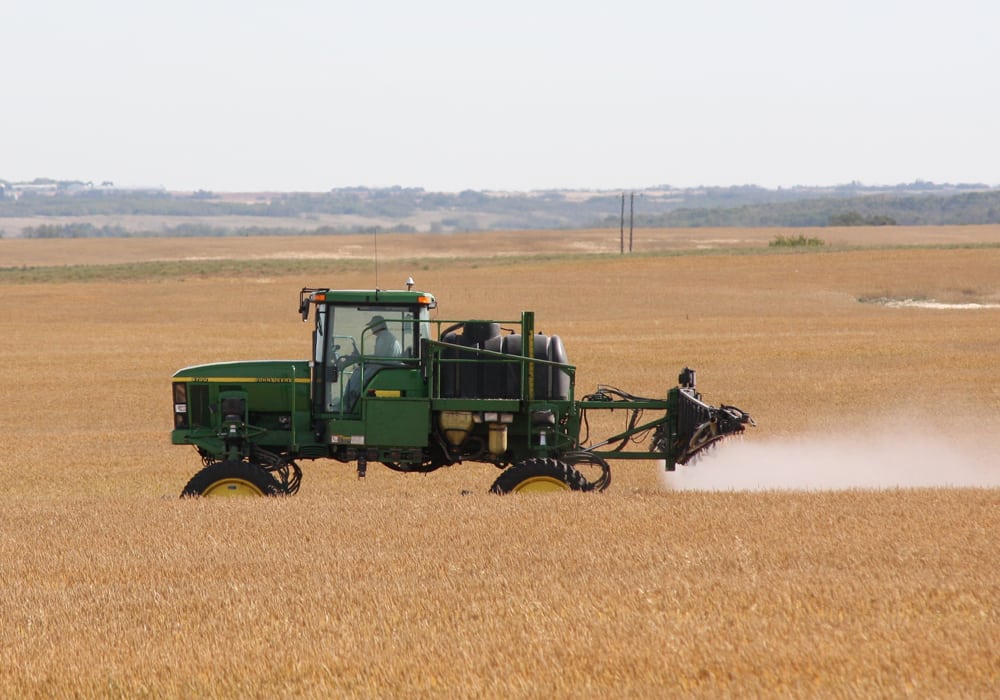Five years ago, about half of the pigs in Canada were raised with ractopamine.
In 2018 the percentage is basically zero.
Use of the feed additive, which increases the rate of gain for hogs, dropped to nothing because Canada’s pork industry listened to market signals.
Major buyers, like China and Russia, didn’t want pork with ractopamine residues — even though the science shows the beta agonist is safe and that residues pose little risk for human health.
In response, Canadian hog producers abandoned ractopamine. They altered their practices to satisfy the realities of the marketplace.
Read Also

Farming Smarter receives financial boost from Alberta government for potato research
Farming Smarter near Lethbridge got a boost to its research equipment, thanks to the Alberta government’s increase in funding for research associations.
Canadian farmers who produce wheat, oats and other crops are getting similar signals from the marketplace.
But it’s hard to know if they’re listening to the signals or tuning the radio to a different station.
Last week, a California jury awarded $289 million to a school groundskeeper who claimed that exposure to Roundup caused his non-Hodgkin’s lymphoma. The court decision rattled investors and hammered the stock value of Bayer, which recently acquired Monsanto and its well-known herbicide.
Bayer stock sank by nearly 11 percent and the German firm lost about $14 billion in value in one day.
Investors sold off Bayer over fears that the jury award will prompt additional lawsuits by individuals or groups claiming glyphosate caused their cancer.
“A large number of similar pending cases will now likely multiply,” a market watcher told Reuters.
Bayer could be tied up in court cases for years or will have to fork over billions to settle the lawsuits. Future court cases over glyphosate, the active ingredient in Roundup, will generate more negative press — encouraging retailers to pull the product from shelves and fuelling political pressure to ban the herbicide. Investors are also asking questions about future sales of glyphosate-tolerant crops, which are core to Monsanto’s business.
The California jury was likely swayed by the International Agency for Research on Cancer (IARC), a division of the World Health Organization.
In March of 2015, IARC announced that glyphosate is probably carcinogenic to humans.
Dozens of toxicologists have slammed the IARC classification over the last three and a half years. Many scientists have described IARC as biased and most believe that IARC’s methods and analysis were deeply flawed.
The European Food Safety Authority, a joint Food and Agriculture Organization/WHO meeting and regulatory agencies around the world have all have concluded that glyphosate is not carcinogenic to humans.
The science may say that glyphosate is safe, but few are listening to the science:
• Last fall, the European Union came close to banning glyphosate. Germany and France may still ban the herbicide.
• California introduced a regulation requiring glyphosate to come with a warning label saying it causes cancer.
• A major miller has said it will no longer buy oats if they are sprayed with glyphosate prior to harvest.
• Italy is refusing to buy Canadian durum wheat, partly over concerns that glyphosate is used on the durum prior to harvest.
Neil Harker, a former Agriculture Canada scientist in Alberta, has said spraying the herbicide prior to harvest to dry down the crop is the source of glyphosate residues in cereal and pulse crops.
Cereals Canada and other industry groups have warned farmers that glyphosate is under increased scrutiny. Therefore, when producers use glyphosate as a harvest aid, they must carefully adhere to label guidelines to prevent unacceptably high residue levels in the grain.
When agronomists are asked about using glyphosate as a desiccant, the standard response is: “glyphosate is not a desiccant,” which is tactful way of saying, “if a producer plans to desiccate, he should use an actual desiccant.”
Despite all those signals from grain buyers, politicians, the public, the media and agronomists, Canadian producers continue to apply glyphosate on millions of acres prior to harvest.
The question is why.
Is it to make a point — to show that they won’t be intimidated and bullied by activists?
Do they fear if they give an inch on pre-harvest glyphosate, that activists will attack the use of glyphosate for early season weed control or post-harvest use?
Those stances have some merit, but grain growers may want to revisit the story of ractopamine and Canada’s pork industry.
Pork exports are now booming and Canada has maintained its reputation as a source of high quality pork.
That sort of reputation has long-term value, and it’s certainly worth protecting.
Contact robert.arnason@producer.com


















